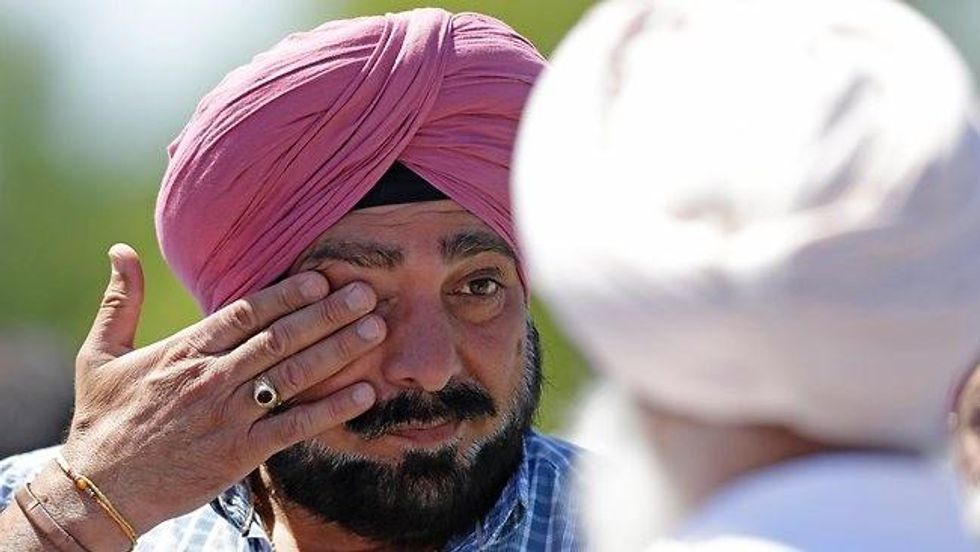One year after the Sikh temple massacre in Oak Creek, Wis., we still aren't grappling seriously enough with intolerance.
The gunman who shot down six worshippers on Aug. 5, 2012, before turning his pistol on himself, was motivated by bigotry. Wade Michael Page had a dubious history.
"The Southern Poverty Law Center, a group that has studied hate crimes for decades, reported that Page was a frustrated neo-Nazi who had been the leader of a racist white-power band known as End Apathy," the Milwaukee Journal Sentinel stated. "Heidi Beirich, director of the center's intelligence project, said there was 'no question' Page was an ardent follower and believer in the white supremacist movement."
There have been several people killed due to Sept. 11-related racism over the past 12 years. Since the very start, Sikh-Americans have been caught up in this vortex. A mere four days after the attacks, Balbir Singh Sodhi was slain in a revenge assault at a gas station in Arizona. And the community continues to be victimized, as the Wisconsin murders so starkly demonstrate.
Contrary to public perception, right-wing extremism has taken a far larger toll in the United States than its Muslim counterpart in the recent past.
"Since 9/11, Muslim-American terrorism has claimed 33 lives in the United States, out of more than 180,000 murders committed in the United States during this period," said a February report by the Triangle Center on Terrorism and Homeland Security. "Over the same period, more than 200 Americans have been killed in political violence by white supremacists and other groups on the far right, according to a recent study published by the Combating Terrorism Center at the U.S. Military Academy."
This report came out before the Boston Marathon bombings. But even when you include the casualties from that horrible act, it's clear that Muslim-Americans are not the main perpetrators of domestic political violence.
Yet some politicians continue to stoke intolerance. GOP lawmakers have spearheaded anti-Shariah law campaigns in several states. Racial profiling has become commonplace. House Homeland Security Committee Chairman Rep. Peter King, R-N.Y., has held a series of hearings on Muslim-Americans. Rep. Michele Bachmann, R-Minn., and four other Republican members of Congress last year accused Huma Abedin, a close Hillary Clinton aide, of having ties to the Muslim Brotherhood, and asked the State Department to investigate her.
For his part, President Obama hasn't helped much. He has been so afraid of being tagged as an adherent of Islam that on a 2010 visit to India, he decided to avoid Sikhism's holiest shrine because it might have made him look Muslim.
One year after a racist killing spree at an American house of worship, we need to make sure that incidents like this never happen again in the United States.
 One year after the Sikh temple massacre in Oak Creek, Wis., we still aren't grappling seriously enough with intolerance.
One year after the Sikh temple massacre in Oak Creek, Wis., we still aren't grappling seriously enough with intolerance.